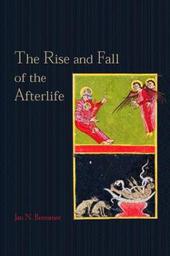
|
The Rise and Fall of the Afterlife
Paperback
Main Details
Description
Belief in the afterlife is still very much alive in Western civilisation, even though the truth of its existence is no longer universally accepted. Surprisingly, however, heaven, hell and the immortal soul were all ideas which arrived relatively late in the ancient world. Originally Greece and Israel - the cultures that gave us Christianity - had only the vaguest ideas of an afterlife. So where did these concepts come from and why did they develop? In this fascinating, learned, but highly readable book, Jan N. Bremmer - one of the foremost authorities on ancient religion - takes a fresh look at the major developments in the Western imagination of the afterlife, from the ancient Greeks to the modern near-death experience. He reveals * the new ways of thinking about the afterlife developed by the Greeks * that the philosopher Pythagoras pioneered both the concept of the immortal soul and of reincarnation * how the Greek 'sect' of Orphics developed the idea of a type of hell * that the Jews, not the Persians, originated the idea of resurrection, but only after Alexander the Great's conquest of Palestine * the possible influence of ancient shamanism on Greek ideas of the soul * the origins of the term Paradise * the connection between ancient necromancy and modern spiritualism * the similarities between ancient, medieval and modern near-death experiences This perceptive and intriguing book concludes that every period gets the afterlife it deserves. It will be of interest to all those interested in what other cultures have believed about life after death, as well as being a standard work for students and researchers in ancient religions, cultural history, and the history and sociology of religion.
Reviews"the book is a pleasant read, and it provides a fascinating sketch of endlessly interesting subject matter. Students and scholars of ancient religion, philosophy, and early Christianity will certainly want to read it, and more general readers will no doubt enjoy it greatly as well."-Peter Aronoff, Marymount College, Bryn Mawr Classical Review, July, 2002 "A relatively brief but wide-ranging book on a complex subject....a useful study."-Religious Studies Review
|